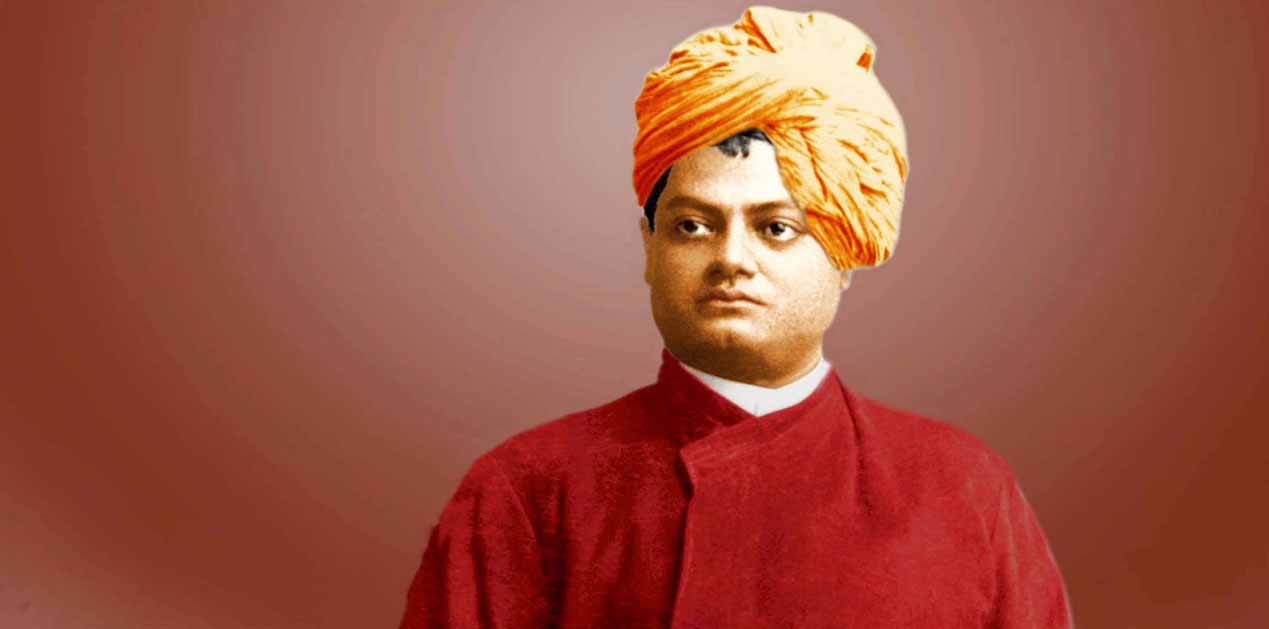(This Commentary has been written to commemorate the birth anniversary of Swami Vivekananda. Before the new generation misconstrues, Manliness is truly defined as ‘Purusharth’. - Ed)
On the occasion of the 156th birth anniversary of Swami Vivekananda on 12th January 2019, it is once again time to re-visit his life and message to draw inspiration for present times. The advent of Swami Vivekananda in modern India heralded the beginning of a new era. He came as a reviver and a reminder of our forgotten heritage—man’s inalienable spiritual heritage: “Each of us is heir-apparent to the Emperor of emperors; are of the substance of God Himself.” 1
In his own words, the Advaita philosophy, which Adi Sankara left in the hills and forests, spread to out of those places to be broadcasted before the work-a-day world and society.2 But Atman, Brahman, and Vedanta are all big words that would mean little to a common person. Eventually, what does it translate into in our day-to-day life with reference to where we stand today? Strength and “manliness”.
The New Gospel of Manliness
Vivekananda once remarked: “The older I grow, the more everything seems to me to lie in manliness. This is my new gospel."3 He had even remarked: “…my mission is not Ramakrishna’s nor Vedanta’s—nor anything but simply to bring ‘Manhood’ to this [Indian] people.”4 The word “manliness” and other interchangeable words appear in his speeches and writings like a steady note—as if he is sounding a gong to us, again and again.
What is this “new gospel of manliness” that Swamiji preached? He used the word “manliness” in different contexts to mean more or less the same thing—strength, boldness, assertion of personhood. “Manliness” means to assert oneself against one’s own inertia, manliness involves taking initiative, taking the whole responsibility on one’s own shoulders: “…stand up, be bold, be strong. Take the whole responsibility on your own shoulders, and know that you are the creators of your own destiny.”5 Manliness is unthinkable boldness; it comes from absolute lack of dependence on anything external. Swamiji said of Krishna in the Bhagavad Gita: “Independent, Krishna stands out. The very boldness of it frightens us. We depend upon everything—...upon a few good words, upon circumstances. When the soul wants to depend upon nothing, not even upon life, that is the height of philosophy, the height of manhood.” 6 But this “manliness” is not aggression. Any kind of aggression or chauvinism is, in fact, antithetical to manliness, which is an expression of a quiet and dignified power, grounded in the knowledge of the potential divinity of humankind.
The Glory of the Human Soul
Vivekananda explains: “Man stands on the glory of his own soul, the infinite, the eternal, the deathless — that soul which no instruments can pierce, which no air can dry, nor fire burn, no water melt, the infinite, the birthless, the deathless, without beginning and without end, before whose magnitude the suns and moons and all their systems appear like drops in the ocean, before whose glory space melts away into nothingness and time vanishes into non-existence. This glorious soul we must believe in. Out of that will come power.” 7
If we are the Atman, then all this manifestation of power is but logical. Then, where lies the hindrance? “All knowledge is in me, all power, all purity, and all freedom. Why cannot I express this knowledge? Because I do not believe in it.” 8 Unless we believe in our own strength, it is not possible to manifest that strength.
The Importance of Shraddha
Hence, it follows that the first condition for the expression of manliness is shraddha—faith in oneself. Shraddha is the source of true strength and courage. This is not any kind of selfish faith. It is important to understand that the source of our power is not our limited subjective selves, the real source of our power is our potential divinity. One’s success (in the long run) will be directly proportional to one’s shraddha. Thus, Swamiji had declared: “He is an atheist who does not believe in himself. The old religions said that he was an atheist who did not believe in God. The new religion says that he is the atheist who does not believe in himself.”9
Can Women Practice Manliness?
All the while, some readers might be thinking “What about women?”, “Is manliness a quality to be developed by men only?” Manliness is a quality to be cultivated by both men and women (Swamiji had asked Ms Mary Hale of Chicago to get a bit of manliness about herself). Women cultivating manliness does not mean women giving up their womanhood and becoming like men, for manliness is not equal to maleness. Women have to take up, as much as men, responsibility on their own shoulders. Perhaps today, women need to do it more than men, as, for too long, women have been crying for help, blaming society, feeling weak and not taking charge of their own lives. Today, fortunately, the situation is changing, and the more women take up responsibility of their own lives and their own actions, the better the future will be.
Bold, Daring, Adventurous Spirits
For Swamiji, “bold, brave, beyond the conception of the present day, stand the giant minds of the sages of the Upanishads”.10 And if one asked him to simplify the teachings of the Upanisads, this is what he would say: “If there is one word that you find coming out like a bomb from the Upanishads, bursting like a bomb-shell upon masses of ignorance, it is the word fearlessness. And the only religion that ought to be taught is the religion of fearlessness.” 11 What is it that he wanted of those who would like to aid in the mission for which he came? “I want bold, daring adventurous spirits to help me,”12 he wrote to his brother disciple.
Swamiji urged us: “Shelve your intricate philosophical speculations for the present. In our country we at present need manhood and kindness.” 13 The task he set for us was: “Let us calmly and in a manly fashion go to work…”14
End Notes
- Swami Vivekananda, Lectures from Colombo to Almora, Advaita Ashrama, Kolkata, 1933, p. 67.
- The Complete Works of Swami Vivekananda, vol. 7, Advaita Ashrama, Kolkata, 1989, p. 162.
- Complete Works of Swami Vivekananda, vol. 8, p. 264.
- Sankari Prasad Basu, ed., Letters of Sister Nivedita, vol. 1, Nababharat Publishers, Calcutta, 1960, p. 82.
- Complete Works of Swami Vivekananda, vol. 2, p. 225.
- Complete Works of Swami Vivekananda, vol. 1, p. 440.
- Lectures from Colombo to Almora, p. 33.
- Ibid., p. 34.
- Complete Works of Swami Vivekananda, vol. 2, p. 301.
- Lectures from Colombo to Almora, p. 340.
- Ibid., p. 67.
- Complete Works of Swami Vivekananda, vol. 8, p. 366.
- Letters of Swami Vivekananda, Advaita Ashrama, Kolkata, 2013, pp. 367-368.
- Complete Works of Swami Vivekananda, vol. 4, p. 366.
Image Source: https://www.sadhviji.org/wp-content/uploads/2018/11/vivekananda.jpg











Excellent observation. The keynote of Swamiji has been well explained. I pay my heartiest regards to the writer.
Post new comment